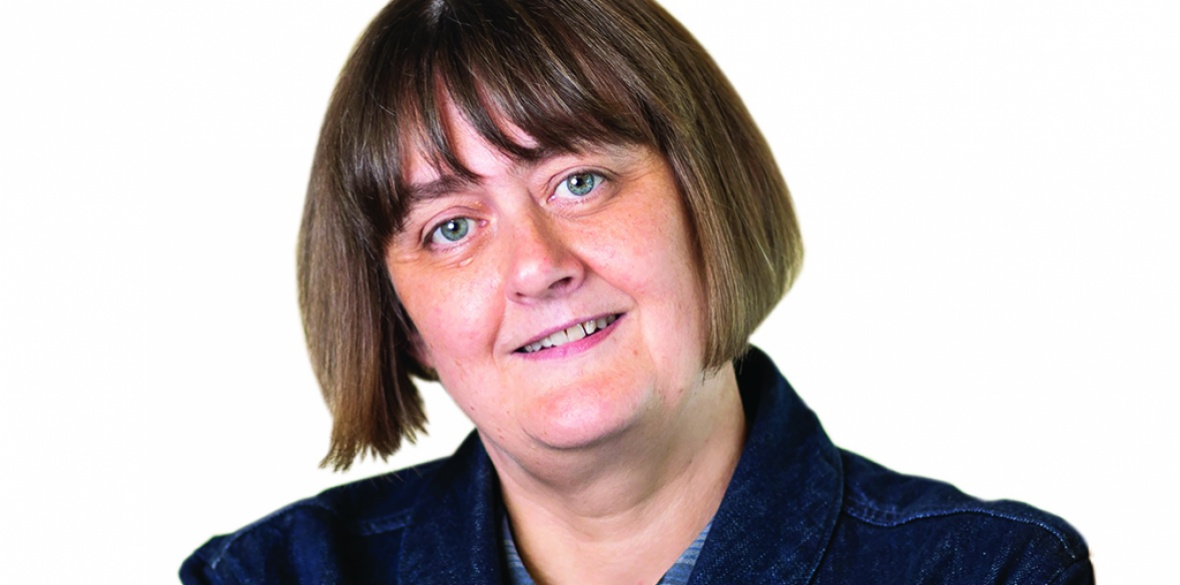This is the last article you can read this month
You can read more article this month
You can read more articles this month
Sorry your limit is up for this month
Reset on:
Please help support the Morning Star by subscribing here
SARAH FRANKCOM spent nigh on six highly successful years as artistic director of the Royal Exchange Theatre in Manchester, and under her tenure it expanded its reputation as one of the leading regional theatres in the country.
So it was a “big decision” for her to leave Manchester — where “the arts ecology is really different to London. It’s more possible to make things happen and the city gets behind ideas and artists” — and take up her new role as director of the London Academy of Music & Dramatic Art (Lamda).
In a sense, Frankcom has come full circle in her new job. She was previously a teacher in the East End of London who “sort of became a theatre director by accident. I’ve always loved making work with young people.”
Her aim at Lamda is to reconfigure what a drama school and training can be, both in who can access it and how it’s delivered. “There’s a lot to do,” she says. “The industry has changed enormously in the last few years and now with Covid, young actors need to be even more confident and resilient as artists and content producers.”
Because of the pandemic, Lamda has started to deliver training online as the only option if students are to keep learning. “Some things have been genuinely creative,” Frankcom says. “The students have created a virtual scratch space where they can share ideas and try things out.
“However, it’s not a substitute. We are all feeling the loss of working in the room together, and the students are desperate to train alongside each other.”
There will have to be a rethink of the training curriculum in preparing for work in a precarious and rapidly changing industry, likely to be even more difficult as a result of the pandemic. For Frankcom, that means seeing actor training as more of an “artist development programme” and a gateway into the creative-skills sector.
It’s about broadening the transferable skills an actor develops, enabling employment in all areas of the industry and, she stresses, it’s “about building resilience in young actors and increasing the support we offer to them when they graduate.
“Now, more than ever, your success is as determined by how you maintain a sense of wellbeing and an artistic practice when you aren’t employed as an actor. We’re looking at ways to help students build up a wider skills set.”
Lockdown means that students in their final stage of training haven’t been able participate in public productions, a vital first step on the ladder to getting work. But they are returning to school over the next few weeks with their self-created projects reconceptualised as encounters for audiences of four to five, and there’ll be another project outdoors.
“We’ve rethought how we use our building, and directors are embracing the challenge of staging their plays without physical contact,” Frankcom says. “I think it’s quite exciting artistically. The space between people is at the heart of an actor’s process — it’s just that now the stakes are higher, and we have to work harder to make a connection.”
The pandemic has been a traumatic period for all students, she says. “Alongside the anxiety there’s a real sense of uncertainty about how quickly the industry will recover. Our black students and students of colour are very concerned about the future right now, and many students have been part of Black Lives Matter protests.”
Even so, the creative work with students has been very satisfying. “I absolutely love collaborating with young actors. I don’t really see a distinction between ‘professional’ and ‘unprofessional,’” she says. “Our students have a great work ethic, and as artists they have a lot to say about the times we’re living through and the need for change.”
And there needs to be change in arts education, which has experienced “a real setback” with this government, she believes. “It’s been very clear for some time now that many, many young people do not experience the performing arts, and drama has not been alive for them in their journey through school,” she says.
Widening access is a big item on Frankcom’s agenda, and the first thing she did when joining Lamda was to significantly reduce the first-round audition fee. And it’s working, because “many more people auditioning this time are very new to acting.
“They may have started at evening class or have come through some of the brilliant youth-arts path programmes that we partner with, like Open Door, 20 Stories High in Liverpool and Prime in Swindon.
“We have a scholarship programme and can offer quite a bit of assistance to applicants who are experiencing barriers to participating.”
Her advice to any young person preparing for the daunting prospect of auditioning for theatre school is both realistic and encouraging.
“Think about whether it’s the right time for you to train,” she advises. “Going to drama school is no guarantee that you will have a lifelong career as an actor. Get some life experience and independence. Both are really helpful in training.
“We are as interested in what you have to say and think about the world as we are in your acting. What kind of stories do you want to tell, and how do you want to tell them?
“Do your homework about the school you’re auditioning for and try not to take rejection to heart. It is one school’s opinion, and we are all looking for different things.
“There are many very successful actors who got rejected from schools and many who didn’t go at all.”












